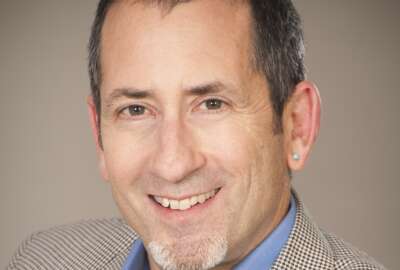
Wiedefeld and Metro: Now that’s leadership
Wiedefeld did two things that show imagination and leadership. First, he put two plus two together. Second, upon reaching a conclusion, he acted decisively.
If anyone hasn’t heard the Metro has a new boss, they know it now. Like a thunderbolt, Paul Wiedefeld’s decision to shut down Metro rail for a whole day made the whole region sit up and pay attention.
Metro notified people by text message, social media and a press conference for which several local radio stations interrupted their regular programming. My daughter, who takes Metro from her apartment in downtown D.C. to her job in upper Northwest, forwarded the text with a typical twenty-something comment: “Is this a joke?”
For the D.C. region, Metro is like an old member of the family. It’s indispensable. It gets sick and cranky. We love to harp on its failings. It’s aging. Sometimes it smells bad. But without it, we’re bereft.
I thought Wiedefeld made a magnificent gesture with the decision to close rail service, while crews check jumper cables that have the potential to burst into flame. One resulting fire killed a woman and endangered many others last year. Another cable caused a fire just Monday.
Wiedefeld did two things that show imagination and leadership. First, he put two plus two together. One cable burning is an incident. Two means something is going on that needs to be fixed, and now. Second, upon reaching that conclusion, he acted decisively. Hearing Wiedefeld and seeing his visage, he doesn’t exude drama or charisma. He’s rather soft-spoken, almost diffident. But his action sends unmistakable messages. Make no mistake about who’s in charge, and make no mistake Metro is entering a new era.
Metro and its earlier parade of leadership talked about safety. But under their watch trains rammed into each other, regularly ran over Metro employees working on tracks, tolerated sloppy train operators, and operated for decades without sufficient communications infrastructure to be effective when underground emergencies occurred.
The Metrorail system was conceived wrongly. It only has two tracks. No inner express pair of tracks that can provide workarounds for maintenance and breakdowns. But it’s the system we’ve got and it needs a lot of work. Shame on the leaders of the region for letting a vital service, not to mention a stunning piece of engineered infrastructure, get so badly out of shape.
Now I have hope the rail system will get the management, dollars and work it needs. The politicians will grouse. D.C. Mayor Muriel Bowser was soon complaining about being surprised by Wiedefeld’s decision. Fair enough. But why doesn’t she worry about the chaotic and random traffic signal timing in the district that seems designed to snarl traffic, rather than beset visitors and its own citizens with elaborate and confiscatory fines?
For the federal government, Metro’s 29-hour shutdown is an inconvenience. To its credit, the Office of Personnel Management swung into action, convening its area governmental council. A decade of encouraging telework and providing the tools for the work part of telework means the government can get stuff done on a 70-degree “snow” day. It’s even warm enough to bike to work.
Paul Wiedefeld: smart move.
Copyright © 2025 Federal News Network. All rights reserved. This website is not intended for users located within the European Economic Area.
Tom Temin is host of the Federal Drive and has been providing insight on federal technology and management issues for more than 30 years.
Follow @tteminWFED




